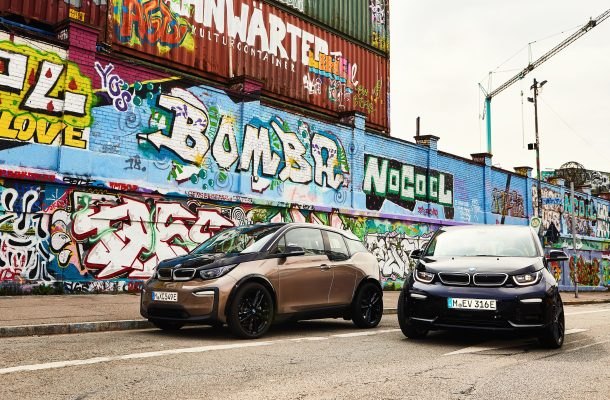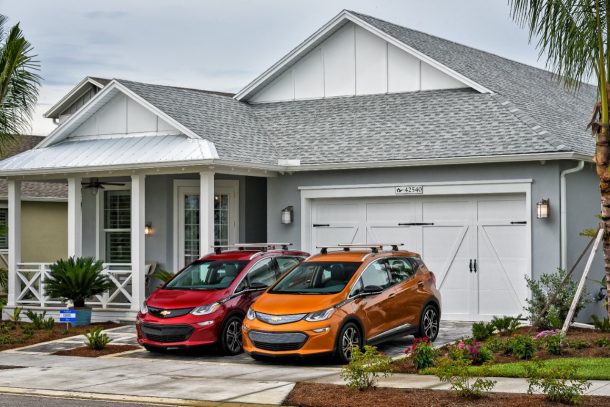#EVAdoption
Study: Auto Execs Are Becoming Less Optimistic About EV Adoption
Automotive executives are reportedly scaling back their expectations for EV adoption, according to an annual survey conducted by KPMG International. Last year, professionals working at the top of the industry reported that they believed (on average) that over half of all new vehicles sold in the United States by 2030 would be battery-electric. But their faith in electrification appears to be evaporating, with most respondents suggesting that particular goal is no longer achievable.
Could Ford's Electric Fleet Sales Be Slower Than Expected?
Despite most automakers proudly proclaiming their intention to shift toward EV-dominant portfolios, customers haven’t been sharing their enthusiasm. While there’s a subset of loyal early adopters that are eager to see electrification become the norm, the relative infancy of the technology and prevalent gaps in the charging infrastructure has kept them from becoming a majority. But manufacturers seem to think it’s just a matter of time and that they’ll be able to make up the difference through fleet sales.
Advertised with lower than average operating costs and juicy subsidies being offered throughout the developed world, automakers have convinced themselves that EVs will soon become the de facto rides for various entities needing to round out their stables. Meanwhile, we’re hearing inklings that Ford is seeing pushback from fleet customers over its s new F-150 Lightning pickup and E-Transit van.
Keeping Tabs: Germany Promises One Million EV Charge Points by 2030
German Chancellor Angela Merkel announced Sunday that her country will soon have one million charging stations ready for electric cars. Her words came ahead of numerous meetings with German automotive manufacturers on how best to spur EV adoption in Europe.
Pivoting to zero-emission vehicles has many worried about job losses. The United Auto Workers issued a nearly 40-page report on the implications of electric vehicles and how to address them during its negotiations with General Motors — after the automaker said the battery plant it was eyeballing in Ohio would require hourly employees to take pay cuts. The Center for Automotive Research has also indicated that EVs simply don’t take as many man hours to manufacture. It’s even mentioned in the Trump administration’s fuel economy rollback proposal — an effort bent on furnishing cheap automobiles and American jobs.
Germany is worried too, with groups echoing similar employment concerns. To mitigate those fears, while encouraging electrification and maintaining jobs, the nation wants to take its 20,000 charging stations to 1 million.
India: Counterpoint to Global Electrification
Last week we reported on the headway electric vehicles are making in the Netherlands, framing the situation as idyllic for EVs. Less picturesque for plug-in sales is India — a nation that has similarly attempted to encourage the proliferation of electric cars, but with unimpressive results. As it turns out, India makes a stellar counterpoint for worldwide electrification.
Based on the success EVs have seen over the last few years, you’d think the government was asking everyone to start eating hamburgers. Despite having a population of 1.34 billion people, with more of them becoming drivers every day, just 8,000 EVs have been sold in the nation over the last six years.
Germany's Transition to EV-Land Sounds Slightly Unpleasant
Yesterday, we discussed Volkswagen trouble in finding the perfect recipe for affordable electric cars. Today, its BMW’s turn, and a broader look at how electrification is affecting Germany on the whole.
Reducing auto emissions has become immeasurably stylish in countries across the globe, with Europe doing some of the heaviest lifting via stringent regulatory measures. As a result, Germany’s automotive sector intends to go green and push EVs to the forefront. While BMW may not have committed itself to electrification quite so thoroughly as Volkswagen, the company isn’t sitting around while the competition does everything. The company is making concerted efforts of its own. Still, there are drawbacks to upending established supply chains and dumping a fortune into developing an entirely different type of car.
The Cost of EV Adoption? Just $6 Trillion
Alternative fuel advocates often suggest that if society could simply get the lead out on solving the infrastructure problem, electric vehicle adoption would reach an all-time high. They’re most likely correct, too. With so much of the world set to gradually ban internal combustion vehicles, EV sales are almost assured to rise. But holdouts abound due to electric vehicles’ laundry list of shortcomings.
Electric cars are often more expensive than their combustion counterparts, offer diminished range, take longer to “refuel,” and are subjected to a charging network that’s less robust than than those associated with petroleum. If the industry is to solve those problems, it’s going to need a lot of money. Around $6 trillion should do the trick.
Seemingly Every Automotive Headline Includes Electric This or That, but What's the State of Electric Vehicle Market Share in America?
You can forget the GM EV1 and the Toyota RAV4 EV. The car that truly attempted to bring electric cars into the mainstream was the 2011 Nissan Leaf.
It didn’t. U.S. Leaf sales, never reaching any great heights, plunged after its fourth full model year, falling by more than half between 2014 and 2016.
There’s a thoroughly updated second-gen Nissan Leaf on its way, destined to hit U.S. dealers early in 2018. But during the first-gen Leaf’s tenure, the Nissan was joined by a broad array of electric cars, from a handful of Teslas to the Chevrolet Bolt, Volkswagen e-Golf, Kia Soul EV, BMW i3, and Hyundai Ioniq, and all of these cars together have combined to quintuple U.S. electric vehicle market share over the last half-decade.
Only 0.1 percent of the new vehicles sold in America in 2012 were pure EVs. That figure has risen, very slowly, to 0.5 percent through the first eight months of 2017 while the number of available nameplates has more than doubled.
Perspective? Ford grew its F-Series’ share of the overall U.S. new vehicle market from 4.5 percent to 5.1 percent during the same period.
Electric Cars Are Officially Keeping the Oil Industry up at Night
Even though electric vehicles still only account for a sliver of the global market, Big Oil is beginning to take them seriously as a long-term threat to the industry. While preserving a finite resource is still probably the way to go, oil companies are accustomed to making money and have now begun revising their forecasts to account for accelerated EV adoption.
Companies like Exxon Mobil and BP are ratcheting up their outlooks for the technology, anticipating slowing oil demand, while OPEC has quintupled its forecast for sales of EVs in the coming years.




















Recent Comments